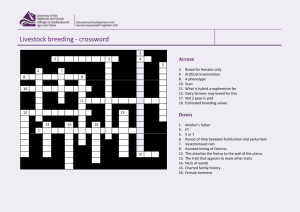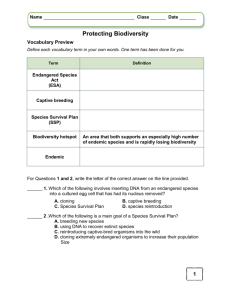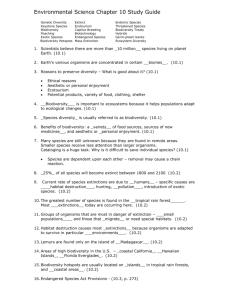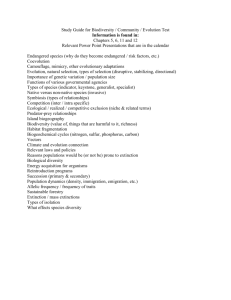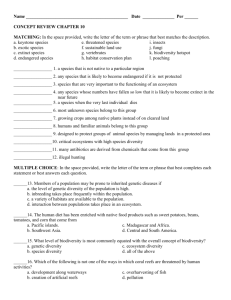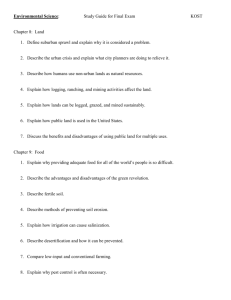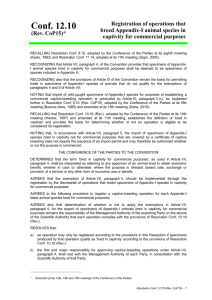Focus Questions anthony
advertisement
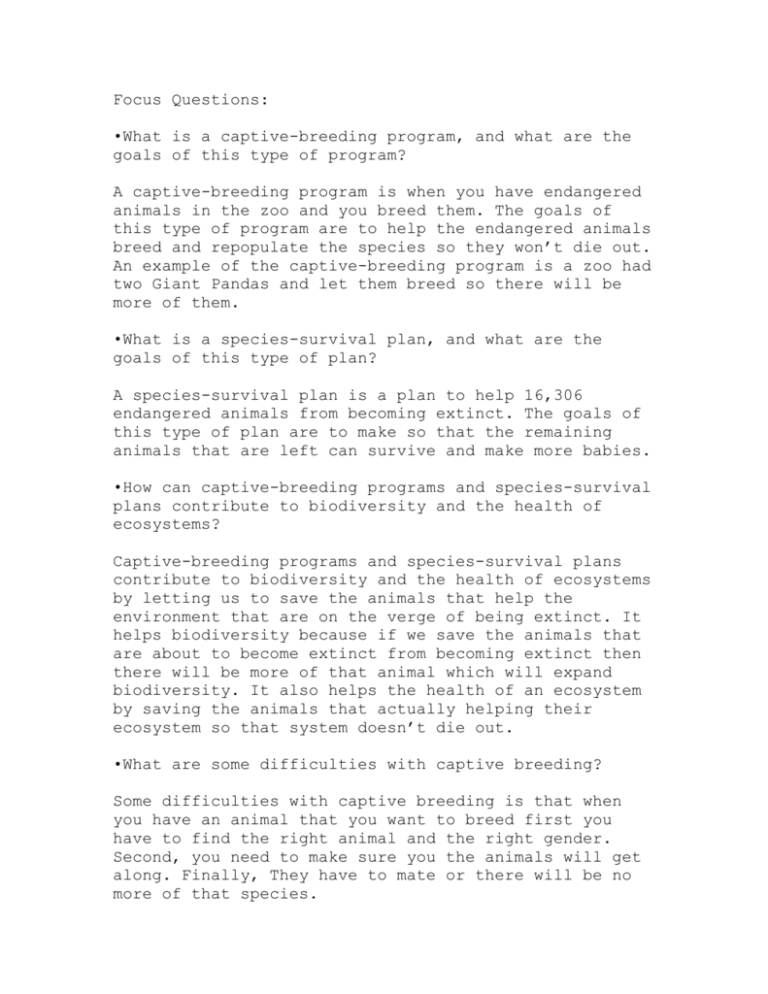
Focus Questions: •What is a captive-breeding program, and what are the goals of this type of program? A captive-breeding program is when you have endangered animals in the zoo and you breed them. The goals of this type of program are to help the endangered animals breed and repopulate the species so they won’t die out. An example of the captive-breeding program is a zoo had two Giant Pandas and let them breed so there will be more of them. •What is a species-survival plan, and what are the goals of this type of plan? A species-survival plan is a plan to help 16,306 endangered animals from becoming extinct. The goals of this type of plan are to make so that the remaining animals that are left can survive and make more babies. •How can captive-breeding programs and species-survival plans contribute to biodiversity and the health of ecosystems? Captive-breeding programs and species-survival plans contribute to biodiversity and the health of ecosystems by letting us to save the animals that help the environment that are on the verge of being extinct. It helps biodiversity because if we save the animals that are about to become extinct from becoming extinct then there will be more of that animal which will expand biodiversity. It also helps the health of an ecosystem by saving the animals that actually helping their ecosystem so that system doesn’t die out. •What are some difficulties with captive breeding? Some difficulties with captive breeding is that when you have an animal that you want to breed first you have to find the right animal and the right gender. Second, you need to make sure you the animals will get along. Finally, They have to mate or there will be no more of that species. •What are the arguments against captive breeding programs? The arguments against captive breeding programs is that its wrong to make animals breed when they don’t want to. •In which situations are artificial habitats beneficial? In which situations might they be harmful? The artificial habitats beneficial is the one that is actually a real replica of the animal habitat and the one that is harmful the one that is made of harmful chemicals.
